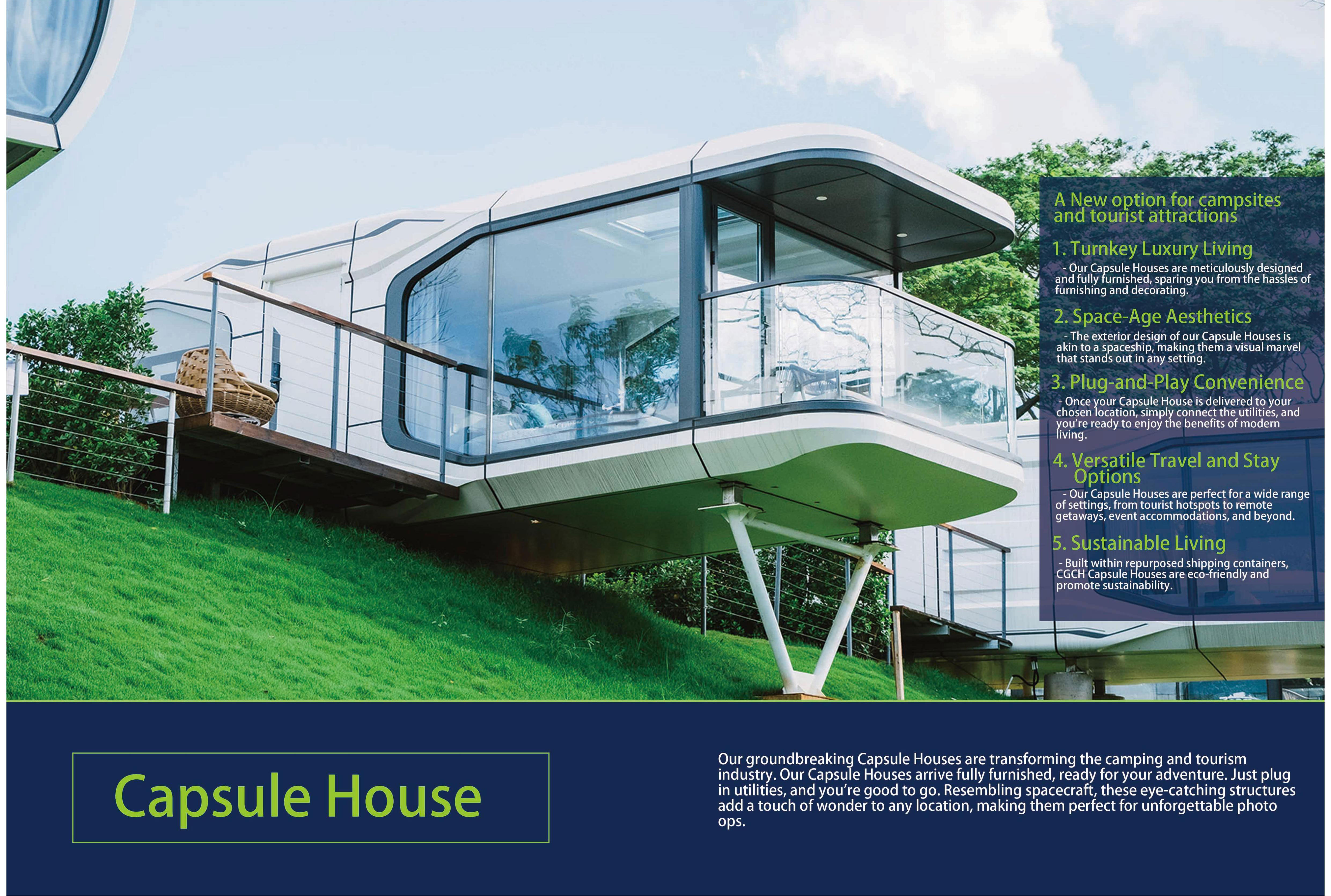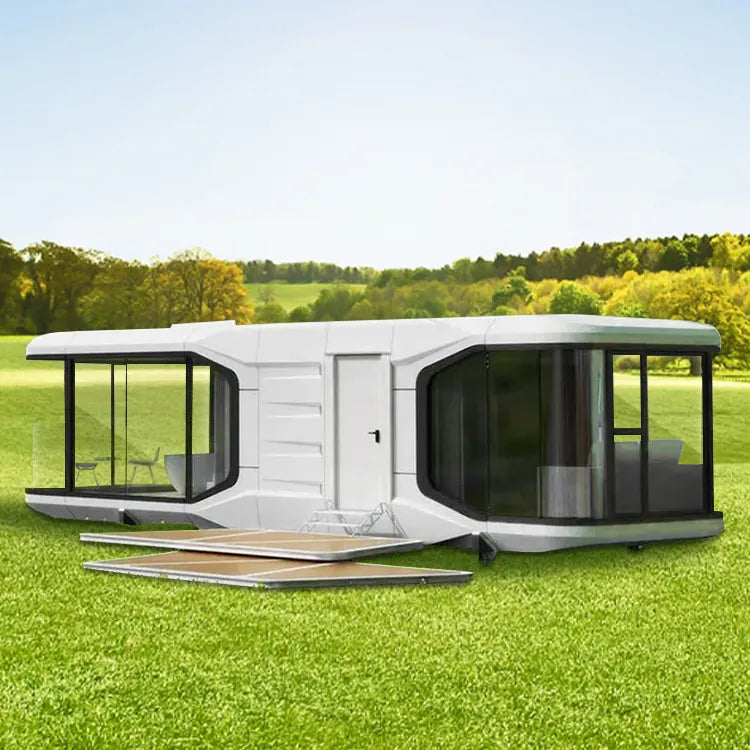Affordable and Eco-Friendly Living with Capsule Houses: A Modern Approach
Why Modular Homes Are the Future of Lasting Living
Modular homes are increasingly identified as a pivotal option for lasting living, supplying a mix of effectiveness, cost-effectiveness, and environmental advantages. The flexibility of modular layouts permits for the combination of sustainable modern technologies and materials customized to private demands.
Ecological Advantages of Modular Homes
The ecological advantages of modular homes stand for a considerable action towards sustainable living. These homes are constructed in controlled manufacturing facility settings, which dramatically lowers waste generated throughout the building procedure. By optimizing materials and lessening excess, modular building and construction adds to a more effective use resources contrasted to typical building approaches.
In addition, modular homes are usually developed with power effectiveness in mind. Lots of integrate innovative insulation strategies, energy-efficient home windows, and lasting products, adding to lower energy usage. This can cause lowered greenhouse gas exhausts over the life-span of the home, improving its total environmental account.
The capacity to transportation and assemble modular elements on-site also decreases the carbon impact connected with building logistics. Furthermore, several modular homes are built to be conveniently upgradeable and versatile, permitting homeowners to implement sustainable innovations, such as photovoltaic panels and energy-efficient home heating systems, gradually.
Inevitably, the ecological benefits of modular homes not just promote sustainable living but additionally motivate a more accountable technique to housing advancement, aligning with global initiatives to deal with environment modification and preserve natural deposits for future generations.
Cost-Effectiveness and Affordability
Building a home usually represents among the largest financial investments individuals make in their life time, and modular homes use an engaging remedy for those looking for cost-effectiveness and affordability. Among the main advantages of modular homes is their reduced construction prices contrasted to typical site-built homes. The streamlined production procedure permits for significant cost savings on labor and products, which translates to lower costs for customers.
Furthermore, modular homes typically have shorter building timelines. This not only reduces expenditures connected to funding and insurance policy yet likewise mitigates the threats connected with rising cost of living and changing market problems. Lots of buyers locate that modular homes can be customized to fit their budget plans without sacrificing quality or style.
Moreover, energy performance is typically developed right into the layout of modular homes, leading to minimized utility bills with time. Lots of manufacturers prioritize sustainable products and practices, further enhancing the long-lasting financial stability of these homes. In general, the mix of initial price savings, quick building, and recurring power performance makes modular homes an eye-catching choice for those aiming to spend in lasting living without breaking the financial institution.
Performance in Building And Construction
Modular homes not only supply financial advantages yet also master building efficiency. The modular structure process involves the synchronised building of modules in a factory setup while website preparation takes place concurrently. This parallel method considerably minimizes the overall timeline from fertilization to conclusion, typically cutting building time by as much as half compared to conventional approaches.
Additionally, factory-controlled atmospheres enhance quality assurance. By utilizing accuracy production strategies, modular homes are developed to exact requirements, lessening waste and mistakes. This consistency not only brings about a better product yet likewise adds to sustainable methods by lowering product waste during construction.
In addition, using contemporary innovation and automation in the manufacturing procedure permits for quicker setting up and decreased labor costs. As soon as the modules are moved to the website, they can be successfully constructed, additionally speeding up the timeline. This structured process is not just advantageous for home builders but likewise decreases disturbances to the surrounding setting during construction.
Modification and Layout Adaptability
An outstanding selection of customization alternatives differentiates modular homes, enabling property owners to customize their living rooms to fulfill details demands and choices. This layout flexibility is a hallmark of modular building, allowing clients to choose whatever from layout and area layouts to components and surfaces. Unlike standard homes, modular designs facilitate a collaborative approach where designers and home builders function closely with house owners, guaranteeing that each element lines up with visual wishes and specific way of livings.
Additionally, modular homes can be conveniently reconfigured or broadened, accommodating transforming household dynamics or advancing personal tastes. This adaptability not just boosts the home's functionality however likewise contributes to long-lasting sustainability, as homeowners can customize their rooms instead of seek new housing services.

Future Patterns in Lasting Real Estate
Arising patterns in lasting housing are reshaping the landscape of property construction, highlighting cutting-edge modern technologies and environment-friendly methods. One considerable trend is the assimilation of wise home modern technology, which boosts power effectiveness through automated systems that enhance and check energy consumption. This not only decreases utility prices however also contributes to a reduced carbon impact.
Furthermore, the use of sustainable products is coming to be progressively typical. Contractors are choosing try this web-site reused, in your area sourced, or rapidly renewable materials, which minimize environmental influence and assistance neighborhood economic climates. In addition, modular homes are obtaining appeal for their decreased waste during building and construction and their flexibility to different surfaces and climates.
One more fad is the unification of environment-friendly roof coverings and living wall surfaces, which enhance air quality and offer natural insulation. These features also advertise biodiversity in metropolitan locations.
Final Thought
To conclude, modular homes become a crucial remedy for lasting living, offering substantial ecological advantages with lowered waste and energy efficiency. Their cost-effectiveness and affordability address the expanding housing needs in metropolitan areas, while efficient building processes boost overall performance. The inherent modification and design flexibility satisfy varied preferences and demands. As patterns in sustainable housing develop, modular homes are positioned to play an important role in promoting green living techniques for future generations.
Structure a home commonly represents one of the largest economic investments individuals make in their life time, and modular homes offer my site an engaging solution for those seeking cost-effectiveness and cost. One of the key advantages of modular homes is their reduced building and construction costs contrasted to typical site-built homes. Generally, the combination of preliminary expense savings, quick construction, and ongoing energy effectiveness makes modular homes an appealing option for those looking to invest in lasting living without damaging the bank.
Eventually, the customization and layout adaptability used by modular homes make certain that they are not simply structures, however customized havens that mirror the one-of-a-kind identities of their passengers while promoting sustainable living techniques.
